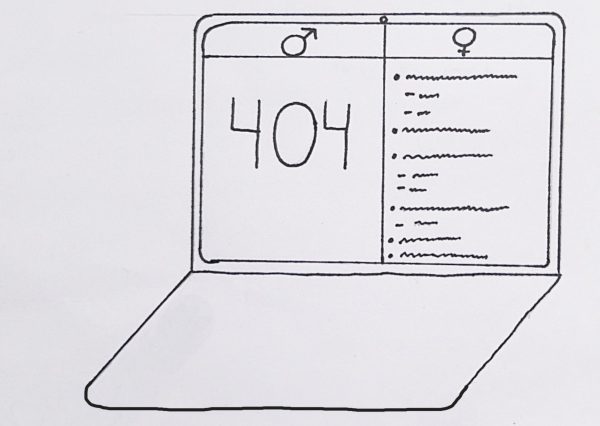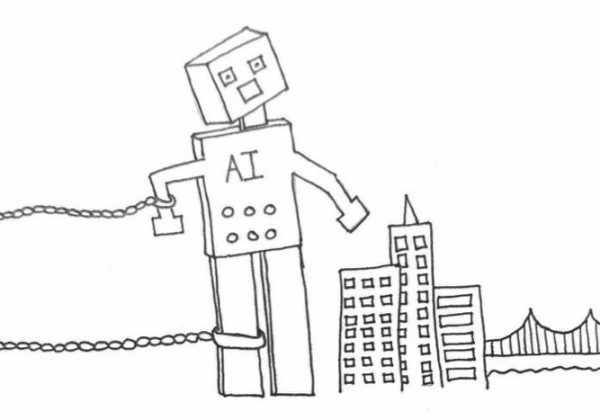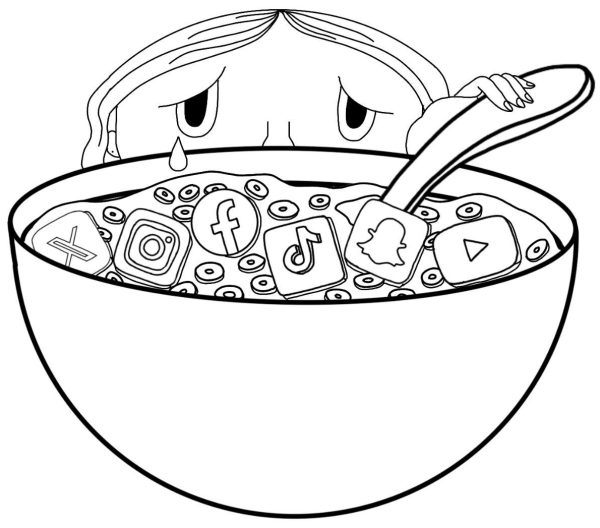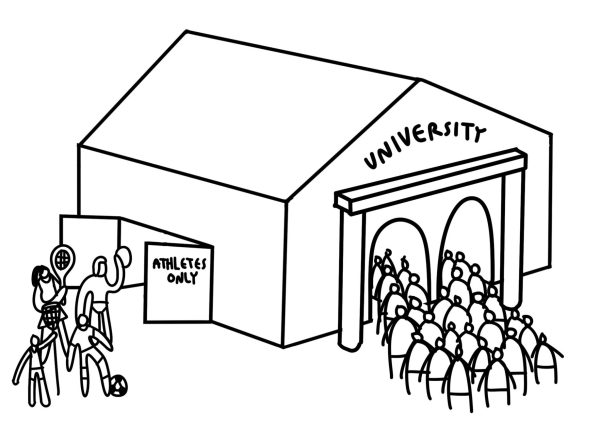Religious schools: Divine education or coercive patronage?
March 25, 2023
I have a confession: I’m not very religious. Although by heritage I’m half Catholic and half Jewish, aside from a few holidays, these designations seldom appear in my life and — in another confession — I’m glad they haven’t.
Many see immense value in religion and rightly so. Even though I do not actively participate in religion, I wholeheartedly endorse many religious ethics. However, regardless of a religion’s positive messages, its promotion does not belong in schools, including private ones.
Places of education aren’t places of worship. The primary function of schooling, as Albert Einstein famously said, “is not the learning of facts, but the training of the mind to think.”

Herein lies the danger behind having, as of 2020, a growing student population of 3.5 million attending religious schools nationwide. Whether in a church, mosque, synagogue or any other place of worship, divine teachings consistently trump individual thinking.
When this transcends into classrooms via religious schools, the equating and emphasizing of preachings in relation to independent thought can harm student autonomy. And when divine teachings clash with academia, religious schools often irrationally favor scriptures over science.
Take the ongoing debate over creationism or the belief that divine acts constructed the universe, which the United States Supreme Court banned from public schools. Although scientifically-backed evolution is clearly preferred in a classroom environment, many religious schools promote creationism through mandatory religious services and theology courses.
Per one local religious school’s website, where a four-year theology graduation requirement not only compulsorily spreads unfounded ideas, but also diverts time away from genuine educational opportunities, seniors are tasked with “understanding the reasonableness of the Catholic faith.” While an unbiased curriculum would enable students to freely learn, this exemplifies that religious schooling restricts courses to supporting the religion in question.
This also explains why data from the Pew Research Center found that with higher education, higher powers fade. Compared to “those with no more than a high school education,” college graduates are over 20 percent less likely to say “religion is ‘very important.’”
Since “religion works more through the emotions than through reason,” as psychologist Nigel Barber wrote, with reasoning gained through secular education, religious importance naturally dissipates.
To reverse this trend, religions have manifested themselves in schools for centuries where they indoctrinate impressionable students from kindergarten classrooms to lecture halls.
A notable example of this is the Catholic Jesuit order, which was established to combat the rise of competing denominations and convert new members through education. To this day, Jesuits operate schools from Saint Ignatius in San Francisco to Georgetown University, subtly fulfilling their mission of propagating Catholicism.
This calls into question the very existence of religion in schools. Religions aren’t involved to educate; they’re involved to advertise, inherently corrupting their presence in classrooms.
Not seeking to diminish the charitable contributions and other benefits of religious institutions, this argument simply acknowledges that religions aren’t in education for altruistic purposes.
When it suits them best, religions are quick to turn on academics. The famous 17th century astronomer Galileo Galilei was sentenced to life for correctly asserting that the Earth revolves around the sun, as it was deemed heretical by the Catholic Church.
Although this incident may seem unrelatable today, there are many ongoing debates over matters of equality, freedom of identity and other social issues that, with the involvement of religion, jeopardize educational autonomy.
This threat poses a fundamental danger to democracies, where free, secular schools are essential. The consensus of America’s Founding Fathers was that educated voters were vital to a freethinking electorate capable of selecting the best candidates. Religion had no place in a secular republic, so, given their critical role in government, it didn’t in schools either.
Today, not only is this democratic virtue under increasing threat with the recent growth of religious schools, but so are personal freedoms.
Having attended public education my entire life, the opportunities afforded to me, to freely think and study, have greatly benefited who I am. I’ve never been forced, neither explicitly nor implicitly, to conform to any religion in regards to my studies or myself. All students deserve these opportunities.
While some desire a faith-based education or situationally prefer religious institutions, religious schools must not continue to prioritize prophecies over facts, nor indoctrination over teaching.
This isn’t an attempt to degrade religions and the good they have done, but rather to ensure that all students are free to learn and express themselves. If religions truly care about their students and academic freedom, then they must withdraw their self-promotion from classrooms by secularizing core curriculum and graduation requirements.
With the issues of today unlikely to disappear by some miracle, as even I feel the urge to pray, secular schools are more important than ever. To meet these challenges, generations of independent thinking students must be educated, and religious schools do not belong in that future.






















